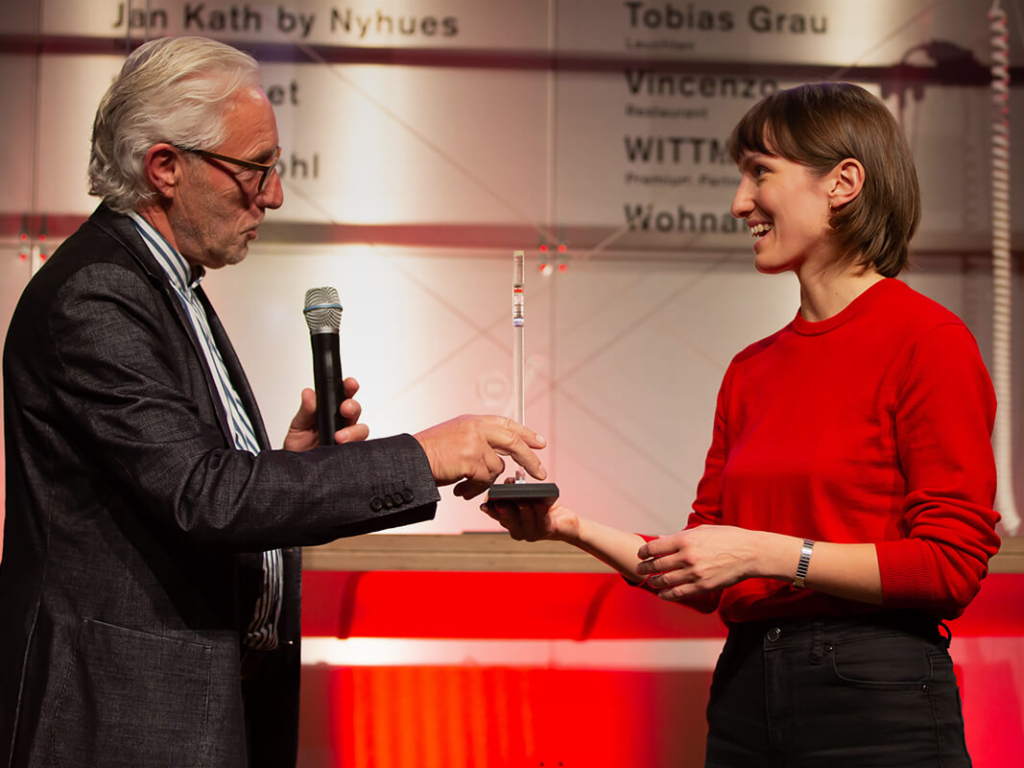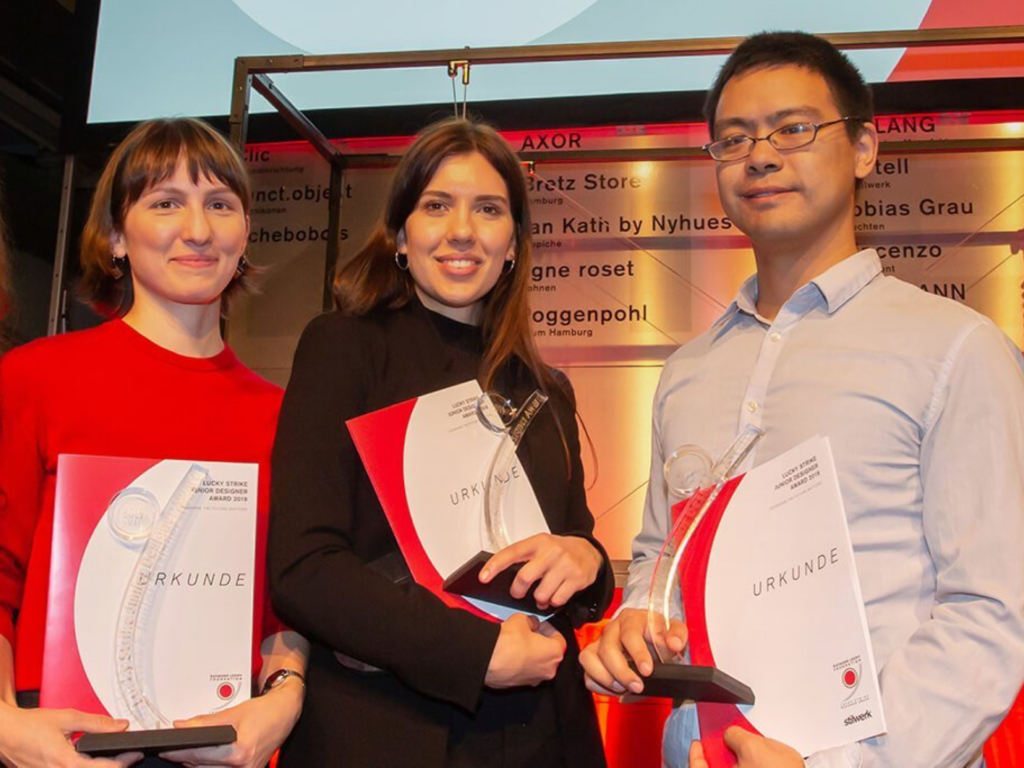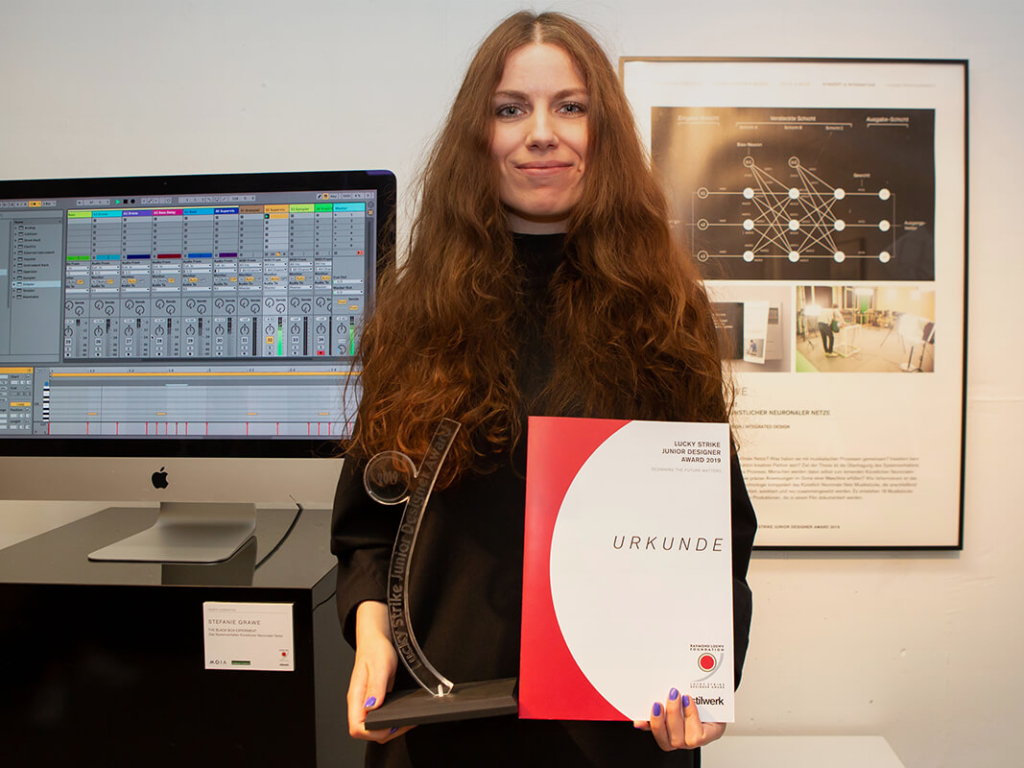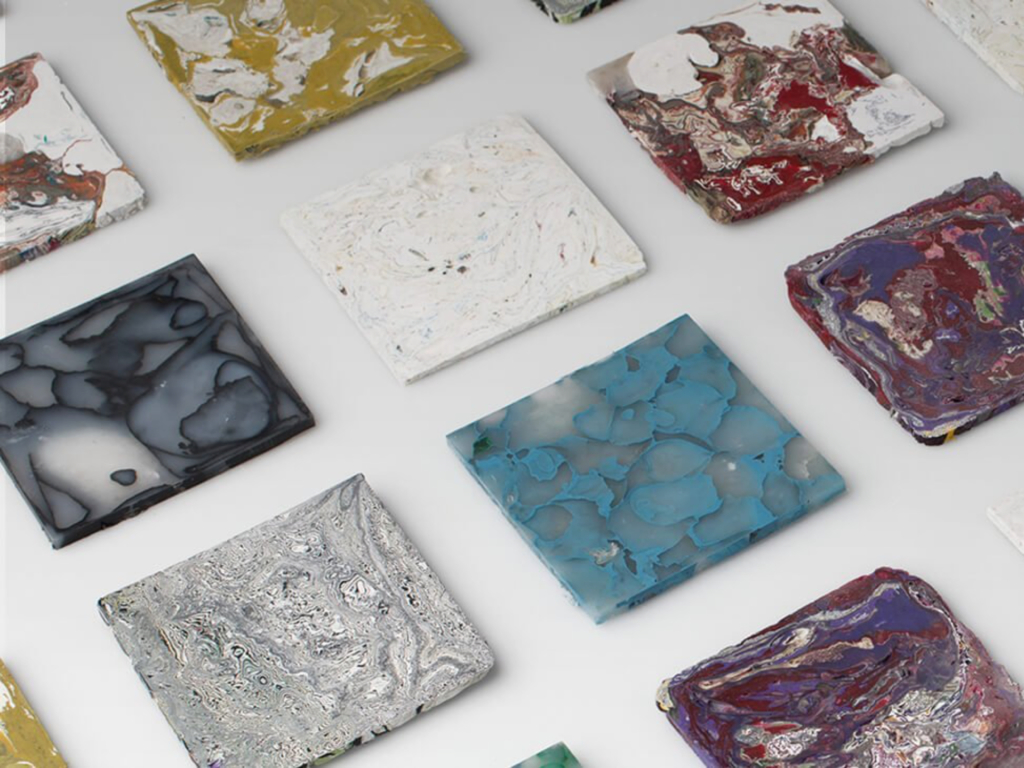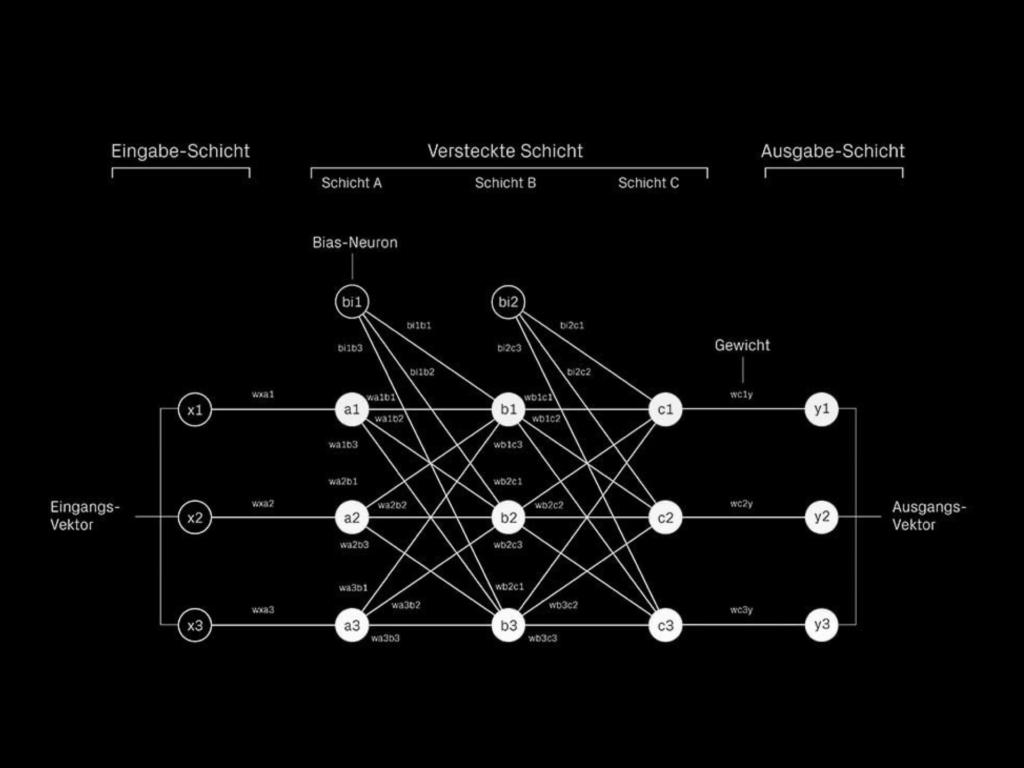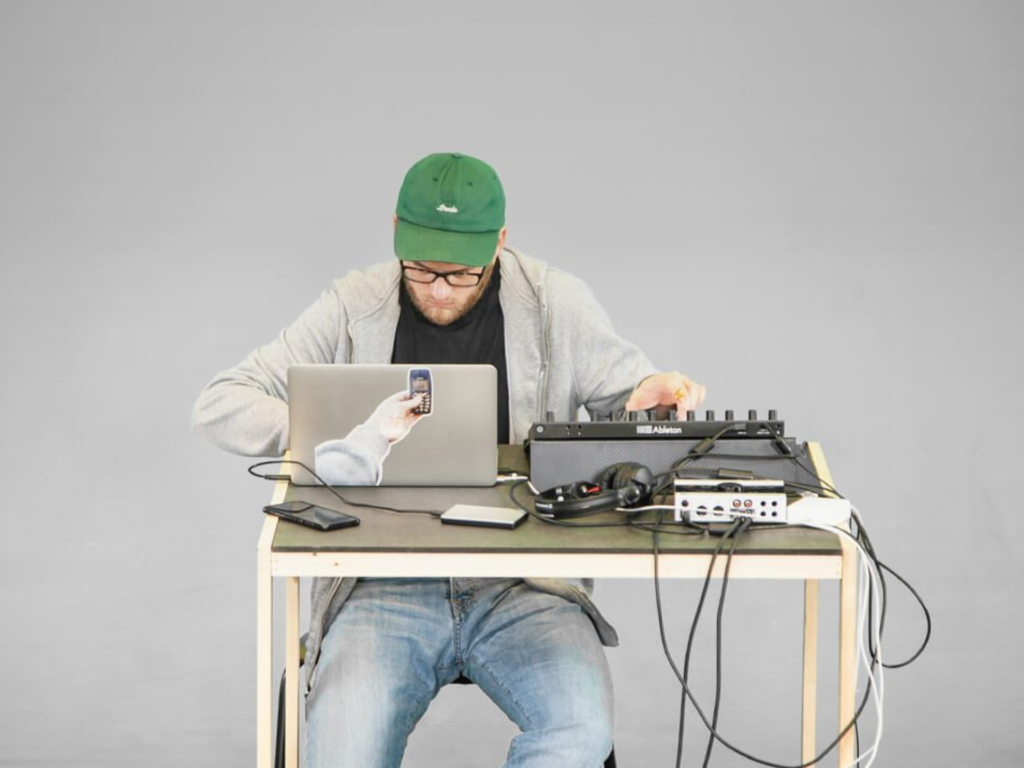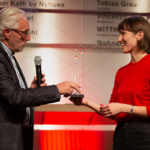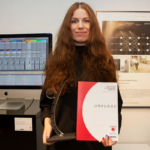Congrats to KISD graduate Stefanie Grawe: In the category of “Communication and Media“, she was on November 9 in Hamburg awarded with the Lucky Strike Junior Designer Award 2019 for her BA-thesis “The Black Box Experiment“. That night, KISD – Köln International School of Design was among the award-winning institutions even twice. KISD graduate Enis Akiev received the Special Award for Young Professionals for her BA-thesis “Plastic Stone Tiles“.
In her thesis ”The Black Box Experiment“, at KISD supervised by Prof. Nina Juric (Image & Motion) and Prof. Andreas Wrede (Identity and Design), KISD graduate Stefanie Grawe deals with the functioning of so-called artificial neuronal networks and their effects on music production. What are the common characteristics of both artificial neuronal networks and musical processes? How can Artificial Intelligence (AI) be a creative partner when it comes to music production? The objective of Stefanie’s thesis was the transformation of the artificial neuronal network’s system behavior to musical processes – with human beings turning into an artificial neuronal network themselves. How adaptive to learning and teaching are musical human beings and musical entities when they carry out precise instructions coming from a machine? How fault-tolerant will the entire network be? Comparable with AI-technology, the artificial neuronal network composes musical pieces which subsequently will be evaluated, selected, and re-composed by the human being – the so-called trainer. With regard to Stefanie Grawe’s thesis, 18 musical pieces came into being, and, resulting from this, two individual music productions that were documented through and in a film.
Distinctions to KISD projects in the realm of “Artificial Intelligence“ and “Sustainability“
The jury stressed in its statement: “The very convincing point in Grawe’s thesis is that it not only tries to deconstruct an artificial neuronal network and attempts to transform algorithmic behavior to music-making people through precise instructions, but that it also longs for a reconstruction oft hat very system in order to provide answers to the following question: How easy/difficult to teach are musical bodies when they perform according to machine order? Stefanie Grawe‘s thesis and her findings that Artificial Intelligence can be, beyond all critical human doubt, a cooperative and creative partner in music production derives from well-done research and is based on very consisting systematics.
“Awardee Stefanie Grawe said:“Artificial Intelligence has already come to our society and has turned to be an integral part of it already and is driving us, our business, technology, and society to the future. For human beings, however, it more and more becomes less tangible how AI will affect human society and us as human beings and our interactions. My thesis deals with the future part of AI, analyzes both the strengths and weaknesses of man-machine interaction and reconciles them in the Black Box Experiment.
“With regard to the Special Award for Young Professionals to KISD graduate Enis Akiev, the jury claimed: “Enis Akiev has made the topic of the threatening abundance of plastic waste in our environment subject of discussion in her thesis. By means of a new synthesis of light plastic waste of all kind and in conjunction with geological material, Enis Akiev through rock-forming processes creates sheet materials with a new aesthetic quality.“Enis‘ thesis “Plastic Stone Tiles“ analyzes, among other points, the functioning of synthetic material in nature and rock-forming processes in general and later develops and generates methods in order to turn and mould light synthetic waste into a rock-like structure for the later development of sustainable recycling processes – in the context of the highly disputed issue of growing plastic waste in our seas, insufficient recycling, and the threatening point of an increasing amount of harmful synthetic material in our environment a topic highly up-to-date and being awarded with the jury’s special award to Enis Akiev. At KISD, the BA thesis was supervised by Prof. Katrin Müller-Russo ( Design and Ecology).
The Lucky Strike Junior Designer Award
Since 1992, the Raymond Loewy Foundation, in collaboration with the company of stilwerk, honors the most talented young designers in Germany through the Lucky Strike Junior Designer Award. According to the organizers, the jury sets in its final choice great emphasis on social-relevant issues, future viability, and on projects‘ innovative strength.
The award is worth 10,000 euro in total and is given to projects in the following categories: “Production & Process“, “Communication & Media“, “Textile & Fashion“, and “Concept & Interaction“. Since 2017, the jury additionally advertises a Special Award for Young Professionals. This year, 150 design theses and projects were submitted, 26 of them were selected for final choice. The award ceremony took place on November 9 in Hamburg at stilwerk.
Please find more information on the award, the members of the jury panel, the different categories, and on the awardees on: https://stilwerk.com/de/microsite/lucky-strike-junior-designer-award
Pictures: stilwerk; Lucky Strike Junior Designer Award
